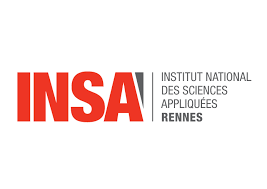University World
Jane Marshall
Groupe INSA, the French group of national institutes of applied sciences, and the University Euro-Méditerranéenne of Fes in Morocco have launched INSA Euro-Méditerranée, which will open in Morocco in September. This first INSA outside France aims to train an internationally mobile, multilingual and multicultural, entrepreneurial engineering elite, and contribute to development and consolidation of the Euro-Mediterranean region.
The institute is also associated with the EuroMedTech consortium of Moroccan and European higher education institutions, and has support from the education ministries of 10 European and African countries – Algeria, France, Italy, Libya, Malta, Mauritania, Morocco, Portugal, Spain and Tunisia.
It will be the first higher education institution whose degrees are recognised by the Moroccan and French states and the European Network for Accreditation of Engineering Education.
The institute is located in Fes at the University Euro-Méditerranéenne, or UEMF, and will have use of its facilities for research, teaching, culture and sports, housing and catering.
Entrance is by competitive examination. There were 1,200 applications for the 192 places available for the first year in 2015-16. Over time the institute will cater for 2,000 students, with 400 graduates a year.
The full studies programme will last five years, taught by teachers from Groupe INSA, UEMF and partner universities. Full fees are MAD70,000 (US$7,000) a year, but grants are available.
INSA Euro-Méditerranée is financed partly by the Moroccan state, with additional funding from national and international donors.
An international approach
In an interview with Libération of Casablanca, Mostapha Bousmina, president of INSA Euro-Méditerranée, explained the background and aims of the new institute which, he said, was an initiative of King Mohammed VI, “who wanted to see established a space of exchange, dialogue and cooperation between the two sides of the Mediterranean”.
As an educational establishment it could “contribute to the development and consolidation of regional integration”, added Bousmina.
He said the objectives were to achieve this vision through “a mix of cultures and nationalities” and to educate an elite that not only had technical skills but were also “citizens capable of rising to the challenges of this region and who have a good command of several languages, immersed in the same multidimensional and multicultural space, and sharing certain values”.
The institute’s governing body and its managers and lecturers included not only Moroccans but also representatives of other countries. Students were coming from the Euro-Mediterranean, Middle East and North Africa – MENA – and Sub-Saharan regions, Bousmina told Libération.
All students would have to spend part of their courses at partner institutions, both in Morocco and abroad, and learn to speak at least two languages in addition to their own. “We work with centres recognised for their language teaching so we can determine the levels students must achieve before they qualify for a diploma,” said Bousmina.
Another innovation was “a spirit of entrepreneurship within the university, with an area dedicated to business incubators which students and teachers can set up, as well as collaboration with the industrial sector outside the university”, he said.
As well as use of information and communication technologies, the institute would have a social sciences dimension, including political, legal, economic and managerial studies, with an emphasis on sustainable development, he told Libération.
From local to global
At national level the institute would teach the skills necessary to carry out Morocco’s sector-specific development plans, particularly those relating to renewable energy, digitisation, ‘emergence’ and ‘green Morocco’, said Bousmina.
Locally, UEMF and INSA could act as a means of development in the Fes-Boulemane area.
In the wider region, “it’s a Euro-Mediterranean university which will allow exchanges between different cultures, an important advantage for Morocco because it has a very important strategic location as a base linking Europe, Sub-Saharan Africa and the MENA region”, he added.
On a global scale: “What we are doing with the Groupe INSA France, for example, is pioneering; our ambition is to educate engineers of high quality who can compete with the best international centres, and also researchers with international reputations,” Bousmina said.
This article is drawn from local media. University World News cannot vouch for the accuracy of the original reports.







